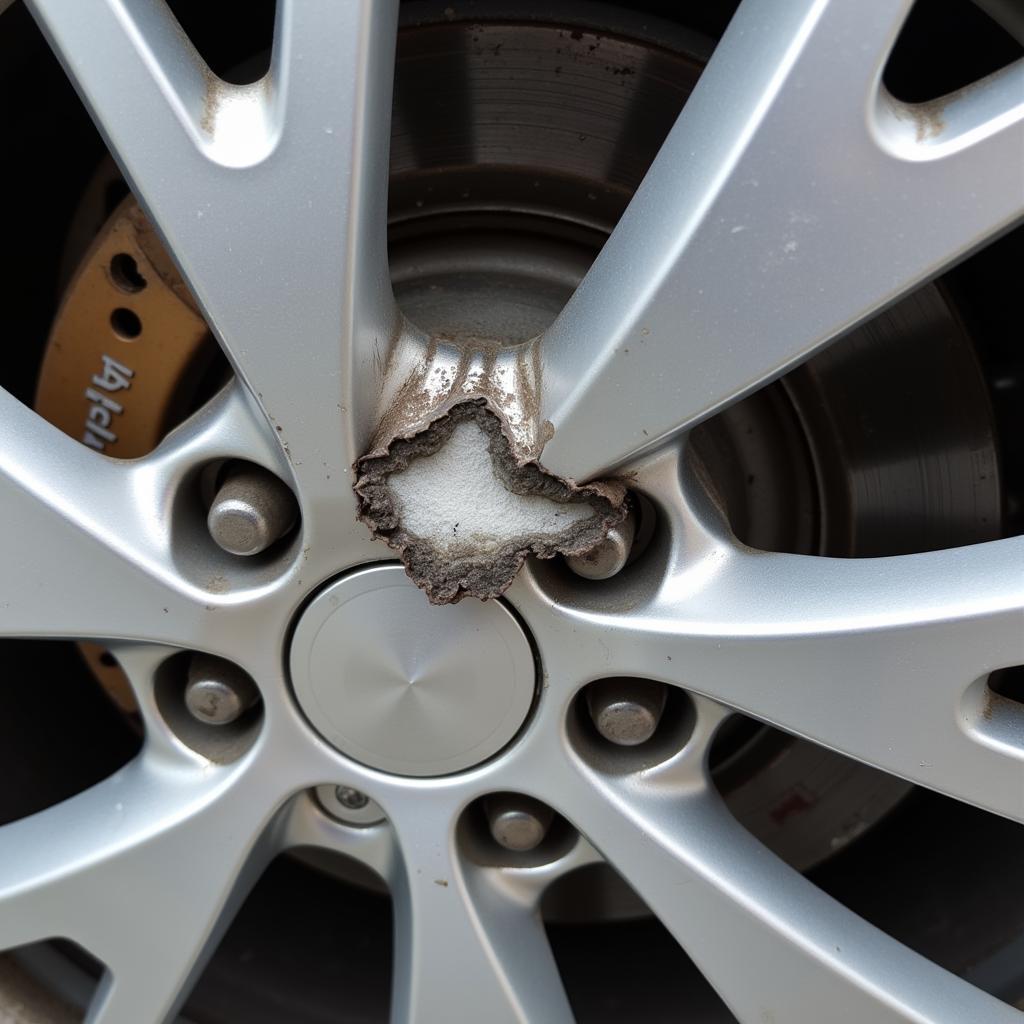As a car owner, the question of “When Do You Start Seeing Problems With Cars?” is always on your mind. Understanding the typical lifespan of vehicle components and the factors that influence their longevity can save you money and headaches down the road. From routine maintenance to unexpected breakdowns, this article will delve into the various stages of a car’s life and when you can anticipate potential issues.
Knowing when common car problems arise can help you prepare and budget for repairs. Being proactive with your car’s maintenance can often prevent small issues from becoming major expenses. For instance, regular checks can identify electrical problems early on. You can learn more about identifying these issues by reading about how to tell if a car has electrical problems.
 Common Car Problems Timeline
Common Car Problems Timeline
Understanding the Factors Affecting Car Lifespan
Several factors contribute to when problems start appearing in a car. Mileage is a significant one, but driving habits, environmental conditions, and maintenance routines also play crucial roles. Aggressive driving, extreme temperatures, and neglecting regular maintenance can significantly shorten the lifespan of your vehicle’s components.
The Impact of Driving Habits and Environment
Aggressive acceleration and braking put extra stress on your brakes, transmission, and engine. Similarly, extreme temperatures, especially cold weather, can affect battery performance, tire pressure, and fluid viscosity. Regularly servicing your car and adapting your driving style to be gentler on the vehicle can dramatically extend its lifespan. For example, you might experience common car problems in the winter due to the harsh weather conditions.
Common Mileage-Related Issues
50,000 to 75,000 Miles: The First Signs of Wear and Tear
Between 50,000 and 75,000 miles, you might start noticing wear and tear on components like brake pads, tires, and the battery. This is a good time to be more attentive to your car’s performance and schedule regular checkups. For example, are you familiar with the chip problem in car? Staying informed about potential issues related to specific components can be extremely beneficial.
100,000 Miles and Beyond: Major Component Concerns
As your car approaches 100,000 miles, more significant components, such as the transmission, water pump, and alternator, might require attention. While these repairs can be more expensive, addressing them promptly can prevent further damage and prolong your car’s life.
“Regular maintenance is like investing in your car’s health,” says automotive expert John Miller, ASE Certified Master Technician. “Addressing small issues early on can prevent them from escalating into costly repairs later.”
Proactive Maintenance: The Key to a Long-Lasting Car
Sticking to your car’s recommended maintenance schedule is crucial for preventing problems. Regular oil changes, tire rotations, and fluid checks can significantly extend the life of your car’s components. It’s like giving your car regular health checkups.
“Think of your car like your body,” advises Sarah Chen, a seasoned mechanic with over 20 years of experience. “Just as regular exercise and a healthy diet are crucial for your well-being, consistent maintenance is vital for your car’s longevity.”
When to Seek Professional Help
If you notice unusual noises, vibrations, or performance issues, it’s essential to seek professional help immediately. Ignoring these warning signs can lead to more severe problems down the road. You can even start your diagnostic process online for free. Learn more about how to diagnose car problems online free. If you own a diesel car and experience issues even at low mileage, you might want to read about diesel car low mileage problems.
Conclusion
When do you start seeing problems with cars? The answer depends on a variety of factors. By understanding these factors and adopting proactive maintenance habits, you can significantly extend the life of your vehicle and avoid costly repairs. Remember that consistent care and attention are key to a healthy and reliable car. If you need assistance with your vehicle, please don’t hesitate to contact us at AutoTipPro. Our phone number is +1 (641) 206-8880 and our office is located at 500 N St Mary’s St, San Antonio, TX 78205, United States.





Leave a Reply